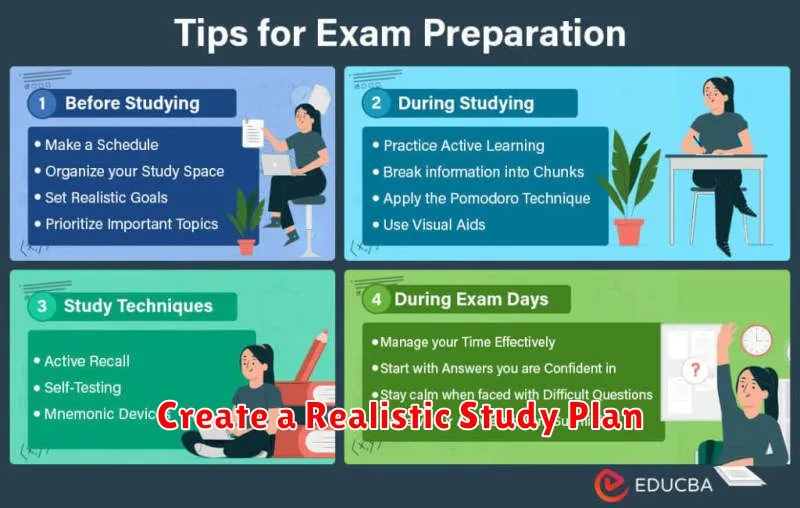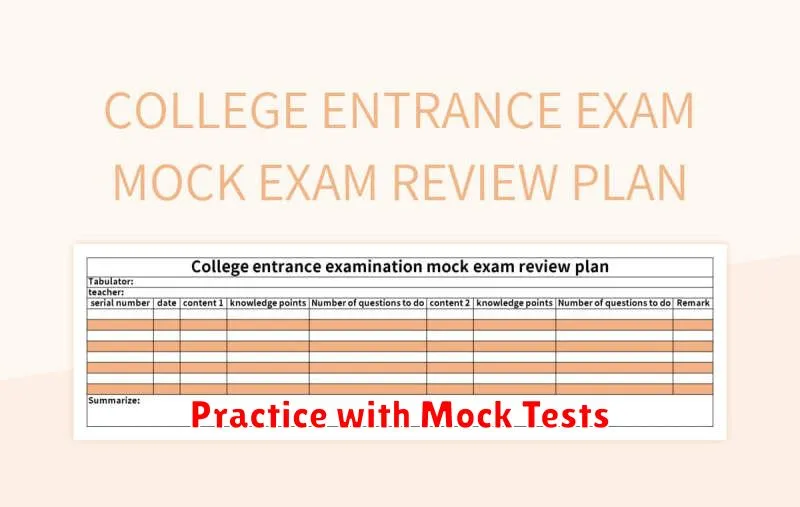Preparing for university entrance exams can be a daunting task, but with the right approach and diligent preparation, you can achieve your academic goals. This article provides a comprehensive guide on how to effectively prepare for these crucial exams, covering essential strategies, time management techniques, and valuable resources to help you succeed. Whether you’re facing the SAT, ACT, or other university entrance exams, understanding the process and developing a strong study plan is key to maximizing your performance and gaining admission to your desired university.
Successfully navigating the university application process requires more than just strong grades. University entrance exams play a significant role in admissions decisions, assessing your knowledge and skills in key areas. By understanding the specific requirements of each exam, developing a personalized study plan, and utilizing effective study techniques, you can increase your chances of achieving a competitive score. This article offers practical advice and valuable insights to help you approach these important exams with confidence and achieve your university aspirations.
Identify Exam Format and Content
A crucial first step in preparing for university entrance exams is to understand the exam’s structure and content. Identifying the format helps you tailor your study approach effectively. Is it multiple-choice, essay-based, or a combination? Knowing this allows you to practice the specific skills required.
Exam content varies depending on the university and program. Research the specific subjects or topics covered. Some exams focus on general knowledge and aptitude, while others assess knowledge in specific fields like mathematics, science, or humanities. Consult official exam guides or university websites for a detailed syllabus or content outline.
Understanding the weighting of different sections is also essential. Some sections may contribute more to the final score than others. Prioritize your study efforts accordingly, dedicating more time to high-weighting areas. Look for sample questions or past papers to familiarize yourself with the types of questions asked and the level of difficulty expected.
Gather Recommended Study Materials
Identifying and gathering the correct study materials is crucial for effective exam preparation. Start by consulting with teachers, mentors, or academic advisors for recommendations on textbooks, study guides, and practice tests specific to your chosen university and program.
Review the official university website and entrance exam resources for recommended reading lists and preparatory materials. Often, they provide detailed syllabi and exam outlines that can guide your study plan. Consider past exam papers, if available, to familiarize yourself with the exam format and types of questions asked.
Supplemental resources like online educational platforms, subject-specific forums, and reputable study communities can provide valuable additional practice and support.
Create a Realistic Study Plan

A well-structured study plan is crucial for effective exam preparation. It provides organization and helps you manage your time efficiently. Start by identifying the key subjects and topics covered in the entrance exams.
Assess your strengths and weaknesses in each subject. Allocate more study time to areas where you need improvement. Break down your study material into manageable chunks. Focus on mastering one concept at a time before moving on to the next.
Create a weekly schedule, allocating specific time slots for each subject. Be realistic about how much time you can commit daily. Include short breaks to avoid burnout and maintain focus.
Prioritize topics based on their importance and difficulty level. Review previously studied material regularly to reinforce your understanding. Incorporate practice tests and quizzes into your plan to assess your progress and identify areas needing further attention.
Finally, remember to be flexible. Life happens, and your study plan should be adaptable. If you miss a study session, don’t get discouraged. Adjust your schedule and get back on track. A good study plan is a living document. Review and revise it as needed to ensure it continues to meet your evolving needs.
Practice with Mock Tests

Mock tests are crucial for effective university entrance exam preparation. They simulate the actual exam environment, allowing you to familiarize yourself with the format, time constraints, and question types. Regular practice helps reduce test-day anxiety and build confidence.
Treat each mock test as if it were the real exam. Adhere to the time limits and avoid distractions. After completing each test, thoroughly review your performance. Analyze your incorrect answers to identify areas needing improvement and revisit relevant concepts.
Use mock tests to refine your test-taking strategies. Experiment with different approaches to time management and question prioritization to find what works best for you. Consistent practice with mock tests will ultimately contribute significantly to your success on the actual exam.
Improve Time Management Skills
Effective time management is crucial for success in university entrance exams. Developing a structured study plan is the first step. This involves allocating specific time slots for each subject, prioritizing topics based on their weightage and your proficiency level.
Create a realistic study schedule that you can adhere to consistently. Break down large tasks into smaller, manageable chunks. This prevents feeling overwhelmed and promotes a sense of accomplishment as you complete each segment.
Regularly review your progress and adjust your schedule as needed. Be flexible, but maintain discipline. Utilize time management techniques like the Pomodoro Technique to enhance focus and productivity during study sessions.
Use Online Resources and Tutors
Supplement your test preparation with the wealth of online resources available. Many websites offer practice tests, study guides, and video lessons tailored to specific university entrance exams. These resources can provide valuable practice and identify areas needing improvement.
Consider engaging a tutor for personalized guidance. Tutors can offer one-on-one instruction, address specific weaknesses, and provide customized strategies for success. They can also offer valuable insights into the exam format and content, as well as tips for managing test anxiety.
Take Care of Mental and Physical Health
Preparing for university entrance exams is a demanding process. It’s crucial to prioritize both your mental and physical well-being during this time.
Managing Stress
Effective stress management is essential. Incorporate activities like regular exercise, mindfulness practices, and sufficient sleep into your routine. These can significantly impact your ability to focus and retain information.
Maintaining Physical Health
A healthy diet and regular physical activity contribute to better cognitive function and increased energy levels. Ensure you’re getting enough nutrients and staying hydrated. Avoid excessive caffeine and processed foods, which can negatively impact your sleep and concentration.
Seeking Support
Don’t hesitate to reach out to family, friends, or counselors for support. Talking about your anxieties and concerns can help alleviate stress and provide valuable perspective.

